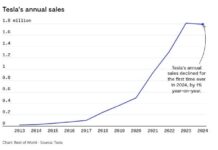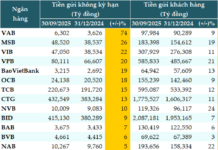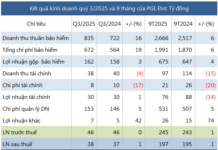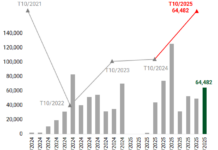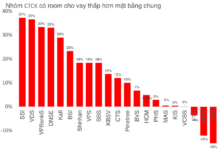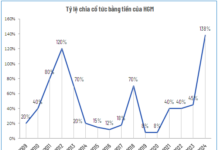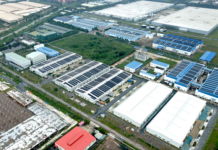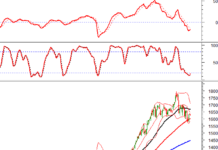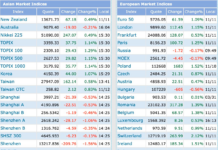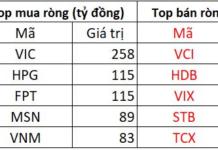Vietnam’s Modern Retail Sector Enters a Transitional Phase
Vietnam’s retail market is undergoing a significant transformation, driven by modernization, digitalization, and the rise of smart consumption. According to JP Morgan, Vietnam’s GDP per capita grew at an average rate of 7.1% annually between 2017 and 2022, surpassing $4,000 and projected to reach approximately $7,500 by 2030. Accompanying this economic growth is a rapid urbanization process, which brings about changes in the lifestyle and consumption behavior of the emerging middle class.
Vietnam is currently in its “golden population” phase, a factor that fueled consumption in markets like China and Thailand before 2010. However, modern trade (MT) accounts for only about 12% of the retail market, significantly lower than the 20-45% range in many ASEAN countries and on par with Indonesia in 2010. This was when MT in Indonesia experienced rapid growth due to the expansion of domestic chains such as Indomaret and Alfamart.
The Vietnamese government’s policies also support the development of the private sector, including Resolution 68-NQ/TW, which aims to boost the domestic market, diversify distribution channels, promote e-commerce, encourage consumption of Vietnamese goods, and support businesses in building their brands.
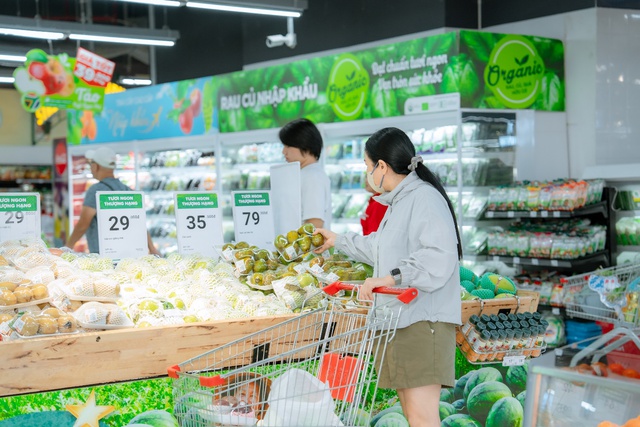
Image: Adapting to the changing retail landscape in Vietnam
In parallel, the application of a lump-sum tax policy for grocery stores and small businesses in the traditional retail channel (General Trade – GT) is increasing cost pressures, narrowing the price advantage, and may force some small stores to downsize or change their business model. As the price gap between GT and MT narrows, consumers tend to shift towards modern retail chains due to transparent invoicing, promotional programs, and enhanced shopping experiences. This trend favors MT, especially in rural areas, where GT has traditionally dominated but is now directly impacted by the lump-sum tax policy.
This trend presents an opportunity for MT retailers like WinCommerce to expand their market share, particularly in rural areas. In the long run, if the tax policy is consistently enforced, MT may accelerate faster than expected due to the natural shift of consumers from GT to modern retail channels.
However, rapid MT network expansion also brings challenges in terms of initial investment costs, including rental, operational, and personnel expenses, requiring businesses to balance growth and profitability.
WinCommerce Expands its Network, with Rural Areas as the Main Growth Driver
According to the latest report, WinCommerce (WCM) recorded a revenue of VND 17,915 billion in the first half of 2025, a 13.4% increase year-on-year; Q2 revenue reached VND 9,130 billion, a 16.4% increase. Pre-MI after-tax profit reached VND 10 billion, an improvement of VND 159 billion compared to the same period last year, marking the fourth consecutive profitable quarter for WCM.
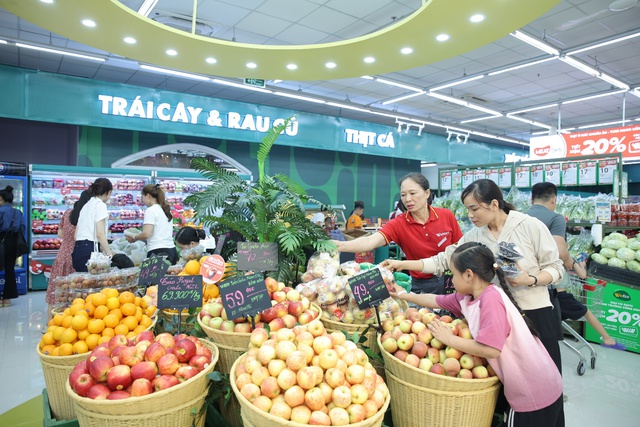
Image: WinCommerce’s rural expansion strategy
Rural areas, home to over 60% of Vietnam’s population, are becoming a crucial growth driver for WCM. In the first half of the year, WCM opened a net of 318 stores, completing about 80% of its new store opening plan for the base-case scenario. This solidifies WCM’s position as Vietnam’s leading modern retailer in terms of store count, with 4,146 stores nationwide. Approximately 75% of the new stores belong to the WinMart+ rural model, where daily revenue has reached nearly 90% of that of urban stores. Notably, most of the new stores have achieved profitability, reflecting the initial success of the expansion strategy.
WinCommerce is not only expanding its retail network but also contributing to changing consumption habits in rural areas. With professionally operated stores, WinMart+ offers a diverse range of products, from daily necessities to fresh produce, all priced transparently and reasonably. This enables rural residents to access the same quality of services as those in big cities. Each WinMart+ store not only serves as a shopping destination but also provides a modern and comfortable shopping experience with clean spaces, convenient payment methods, and regular promotions, making supermarket trips a new source of joy for rural dwellers and narrowing the consumption gap between rural and urban areas.
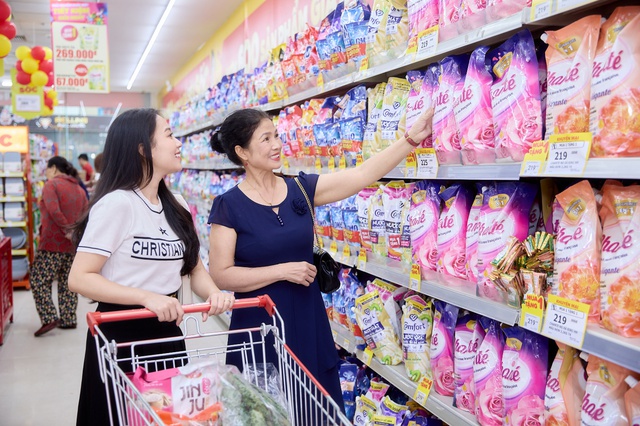
Image: WinMart+ store in a rural area, offering a modern shopping experience
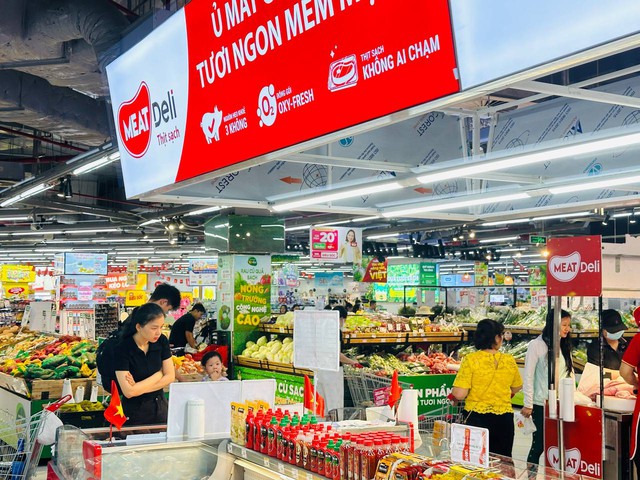
Image: WinMart+ stores bring convenience and a diverse range of products to rural consumers
However, while the rural market potential is immense, rapid expansion also poses the challenge of cost control. To enhance efficiency, WCM leverages the Masan ecosystem, including Masan Consumer (fast-moving consumer goods), WinEco (vegetables and fruits), Masan MEATLife (fresh and processed meat), and Techcombank (digital financial solutions), to increase the value of each store and better allocate costs.
With the expanding middle class, rapid urbanization, and digitalization, modern retail in Vietnam, especially in rural areas, is expected to continue its growth trajectory. However, financial efficiency and cost management capabilities will be key determinants of the sustainability of businesses in this competitive market.
A Glimpse Into the Billion-Dollar Markets of Ho Chi Minh City, Soon to Be Cleared.
TPO – With billions of dongs in investment and the aspiration to become a modern trading center, replacing the spontaneous markets, these markets in Ho Chi Minh City are now left as cold concrete blocks after more than two decades. The gates are locked tight, kiosks are covered in dust, and wild grasses grow rampant.
“The Digital Transformation Dilemma: Why 80% of Businesses Fail to Get it Right”
Many manufacturing businesses still envisage digitization as a far-fetched story, believing it entails full automation of the factory, with minimal human presence. They imagine a handful of people sitting in front of computer screens, operating the entire factory, which is a rather fanciful notion.
The Retail Renaissance: Unveiling Opportunities for Businesses to Soar
The retail market is due for a shake-up, according to experts. It’s a time of flux, with many businesses exiting the industry and leaving a void that only the most resilient and forward-thinking enterprises can fill. This creates a unique opportunity for those with a strong foundation to step up and seize the initiative.
“Elevating Ho Chi Minh City’s Intrinsic Capabilities: Enhancing International Collaboration for Industrial Transformation”
Industrial transformation is not just an option but an urgent necessity for Ho Chi Minh City. In this journey, the City must foster intrinsic motivation and seize global trends to propel itself forward.



